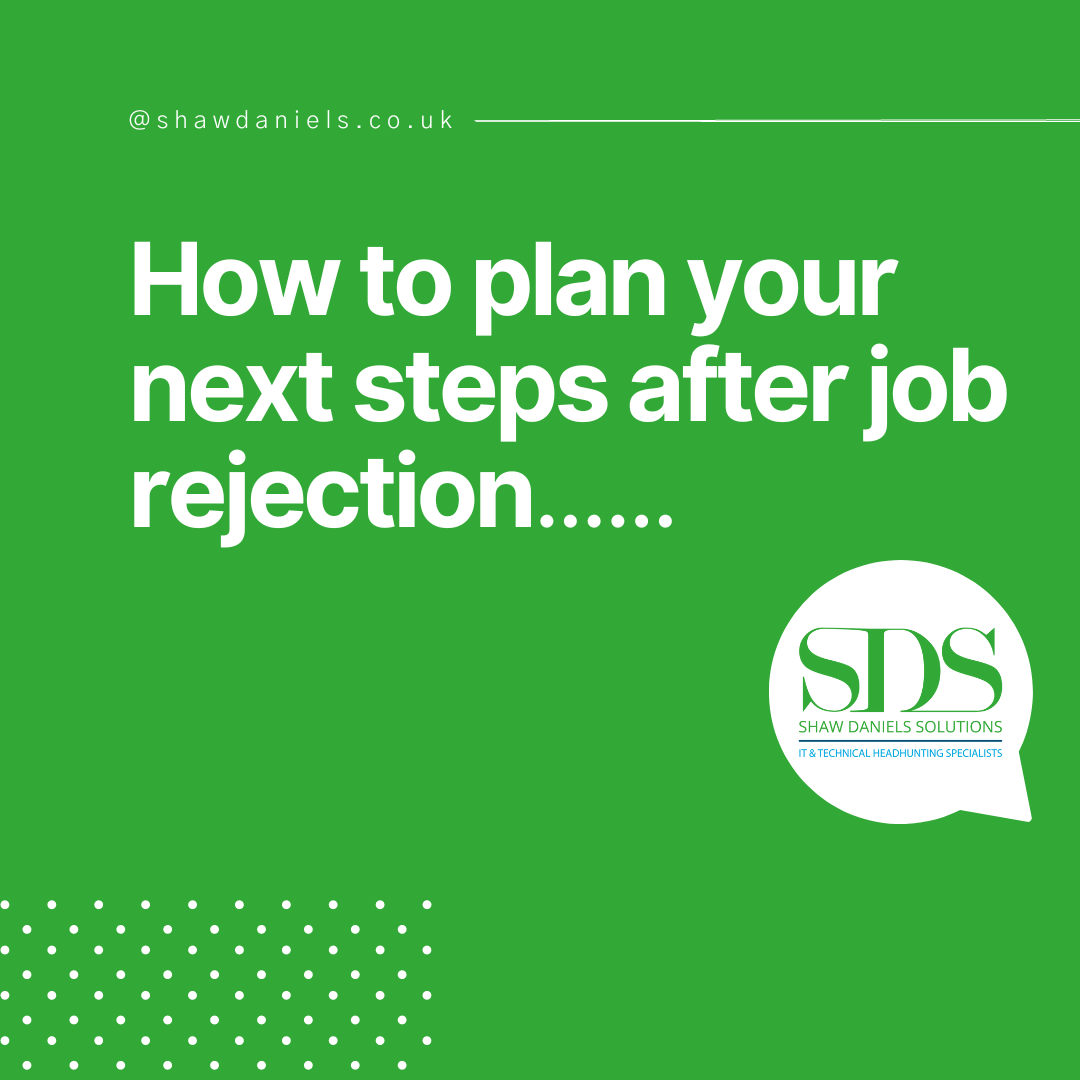
How to plan your next steps after job rejection and how using a recruiter can help!
Job rejections can be disheartening, but it’s important to keep in mind that it’s a part of the job search process. Here are some steps to take after being rejected for a job:
- Take time to process your emotions: It’s okay to feel upset or disappointed after a rejection. Take some time to acknowledge and process your emotions before moving forward.
- Ask for feedback: Reach out to the employer and ask for feedback on why you weren’t selected. This can help you identify areas for improvement in your job search and future applications.
- Reflect on your goals: Use this opportunity to reflect on your career goals and reassess if your current job search strategy is aligned with those goals.
- Continue networking: Keep networking and building relationships with professionals in your field. This can lead to new job opportunities or referrals in the future.
- Improve your skills: Consider taking courses or gaining new skills that will make you a more competitive candidate for your dream job.
- Stay positive: Remember that rejection is a natural part of the job search process, and don’t let it discourage you from pursuing your career goals. Keep working hard and stay positive!
After a job rejection, you may consider working with a recruiter to help you find new job opportunities. Here’s how you can use a recruiter to your advantage:
- Research and choose the right recruiter: Look for recruiters who specialize in your industry and have a good track record of placing candidates in positions that match their skills and experience.
- Build a relationship: Once you’ve found a recruiter, build a relationship with them by sharing your career goals, skills, and experience. This will help them better understand what kind of jobs you’re looking for.
- Be open to new opportunities: Recruiters may have access to job openings that you wouldn’t find on your own. Be open-minded to new opportunities that they present to you, even if they don’t match your initial job search criteria.
- Prepare for interviews: Recruiters can offer valuable advice on how to prepare for interviews and what employers are looking for in candidates. Use their expertise to your advantage.
- Stay in touch: Even if you don’t land a job through the recruiter, stay in touch with them. They may be able to connect you with other job openings or opportunities in the future.
Working with a recruiter can be a great way to boost your job search, but remember that it’s not a guaranteed solution. Keep networking and applying to jobs on your own as well to maximize your chances of finding the right job for you.

